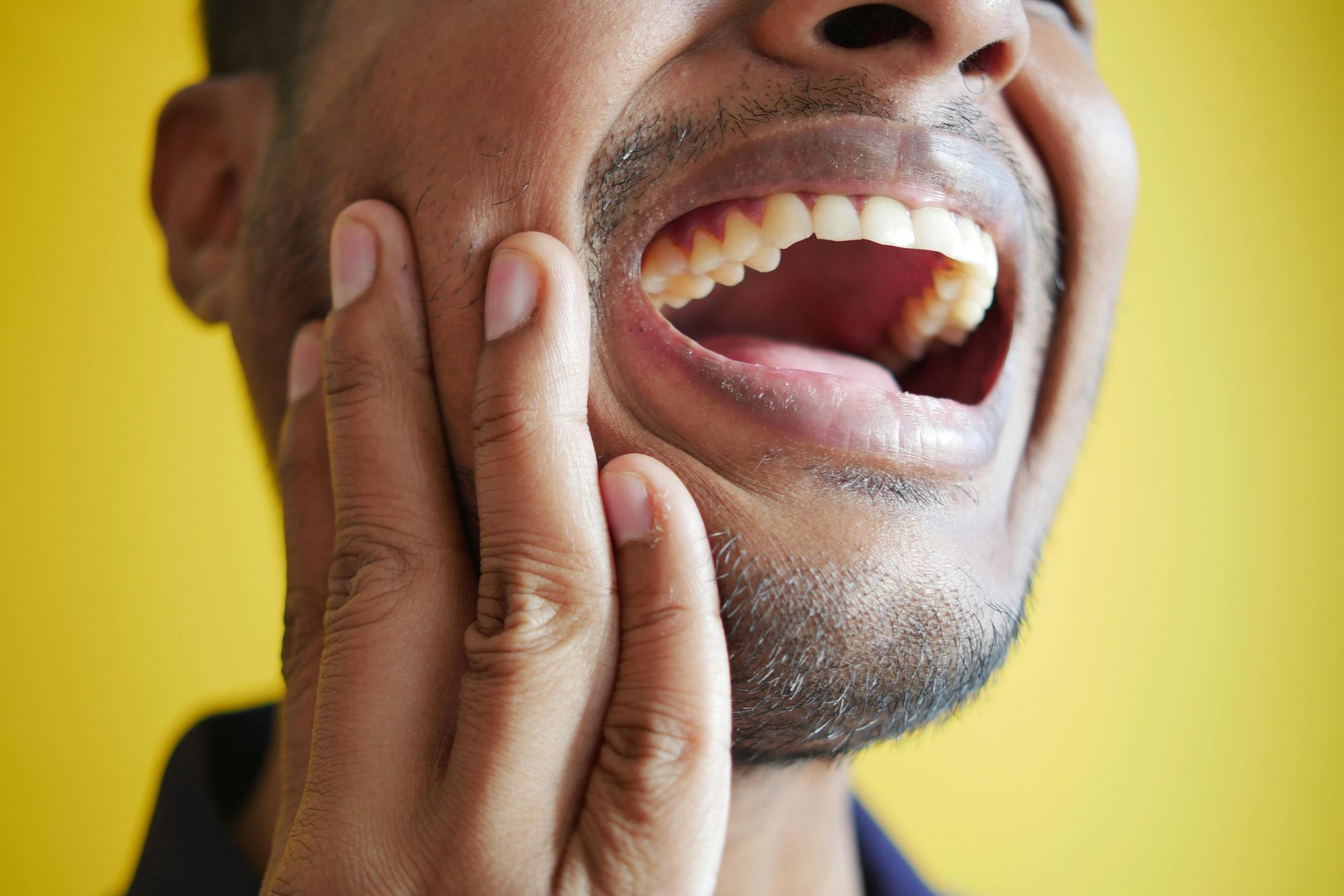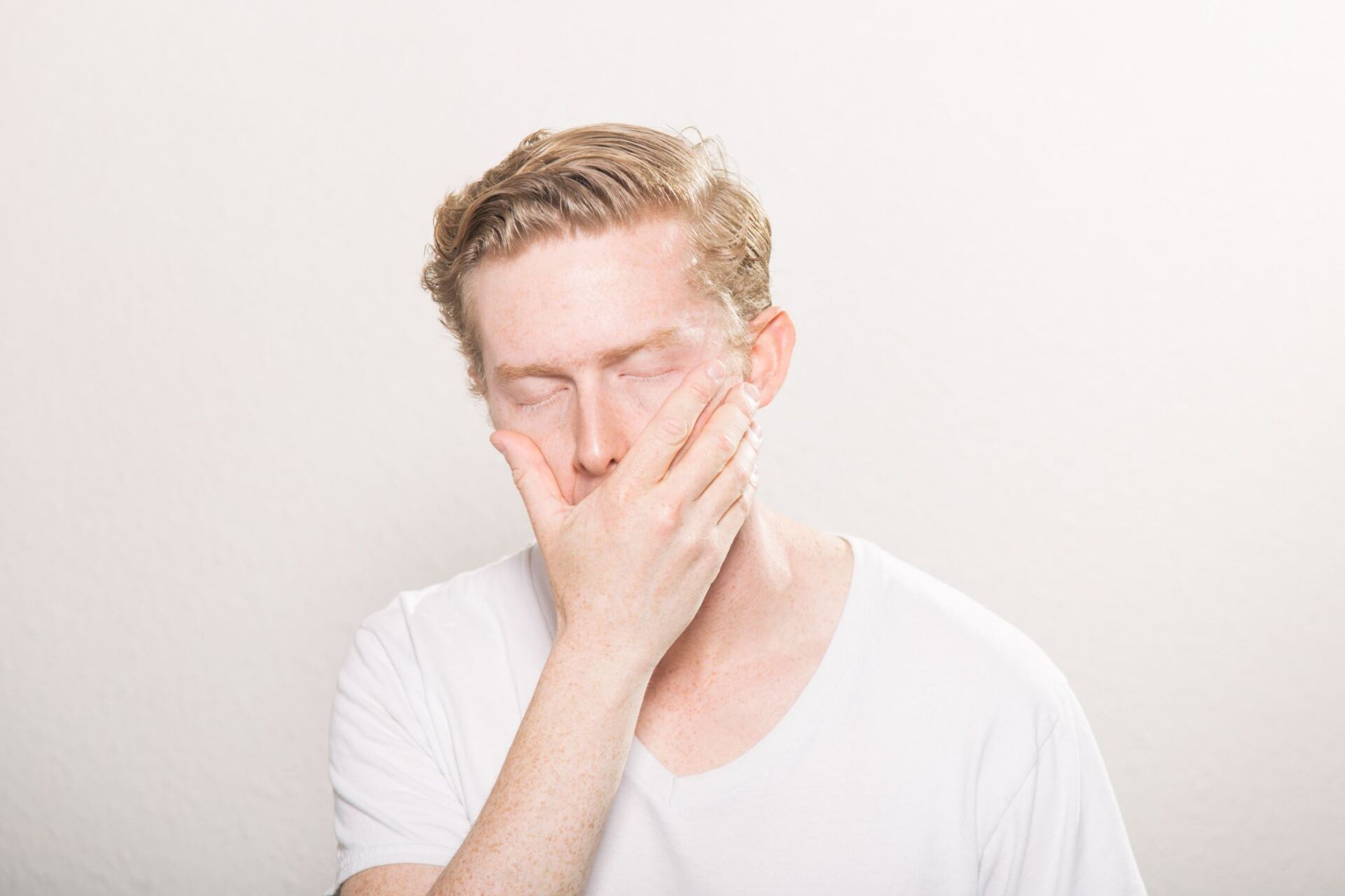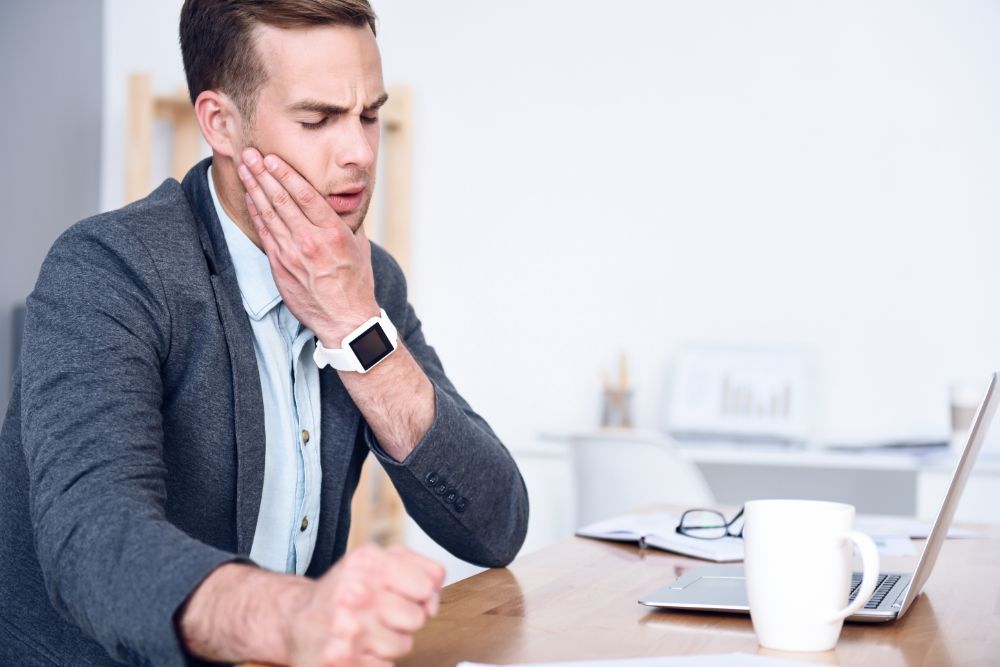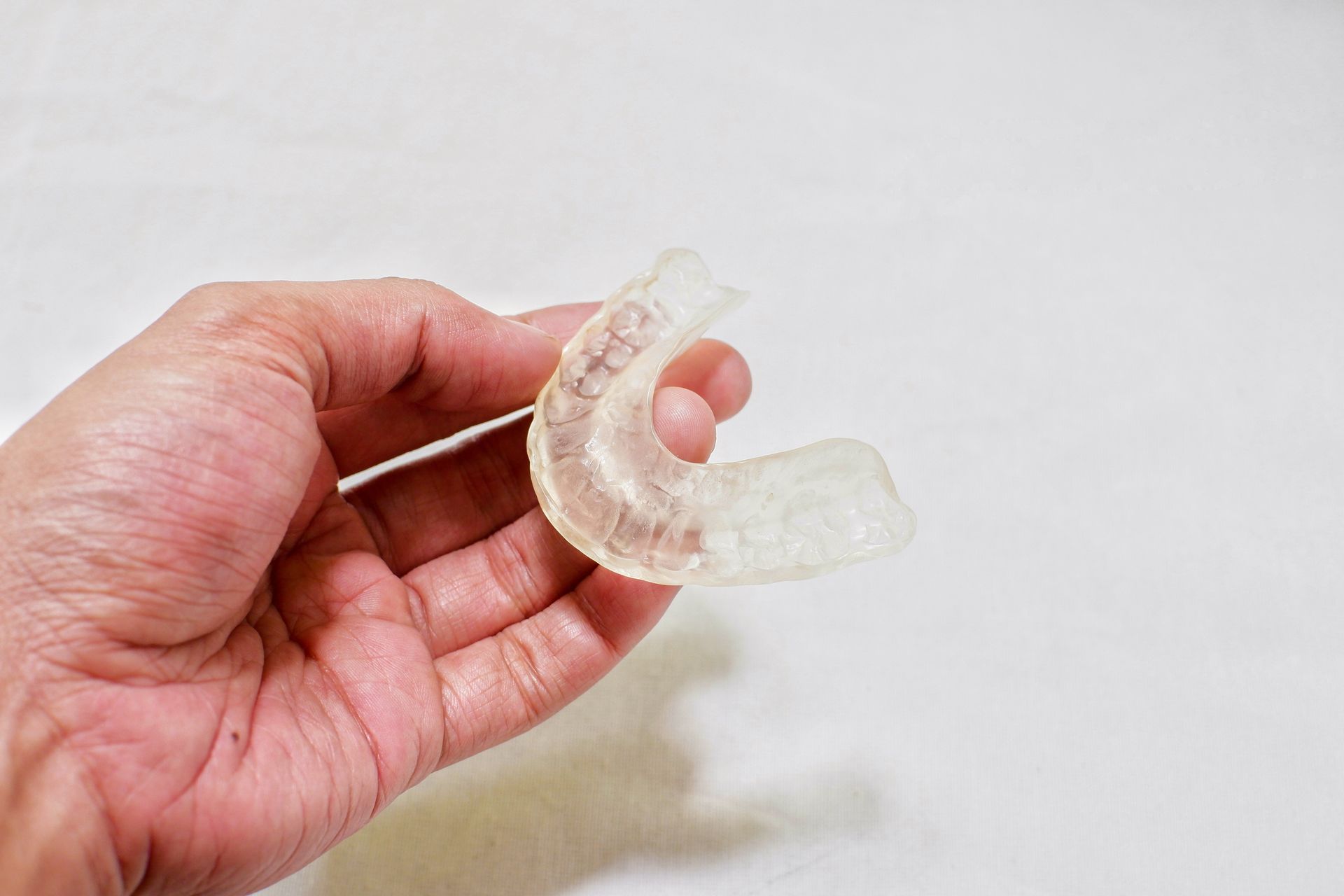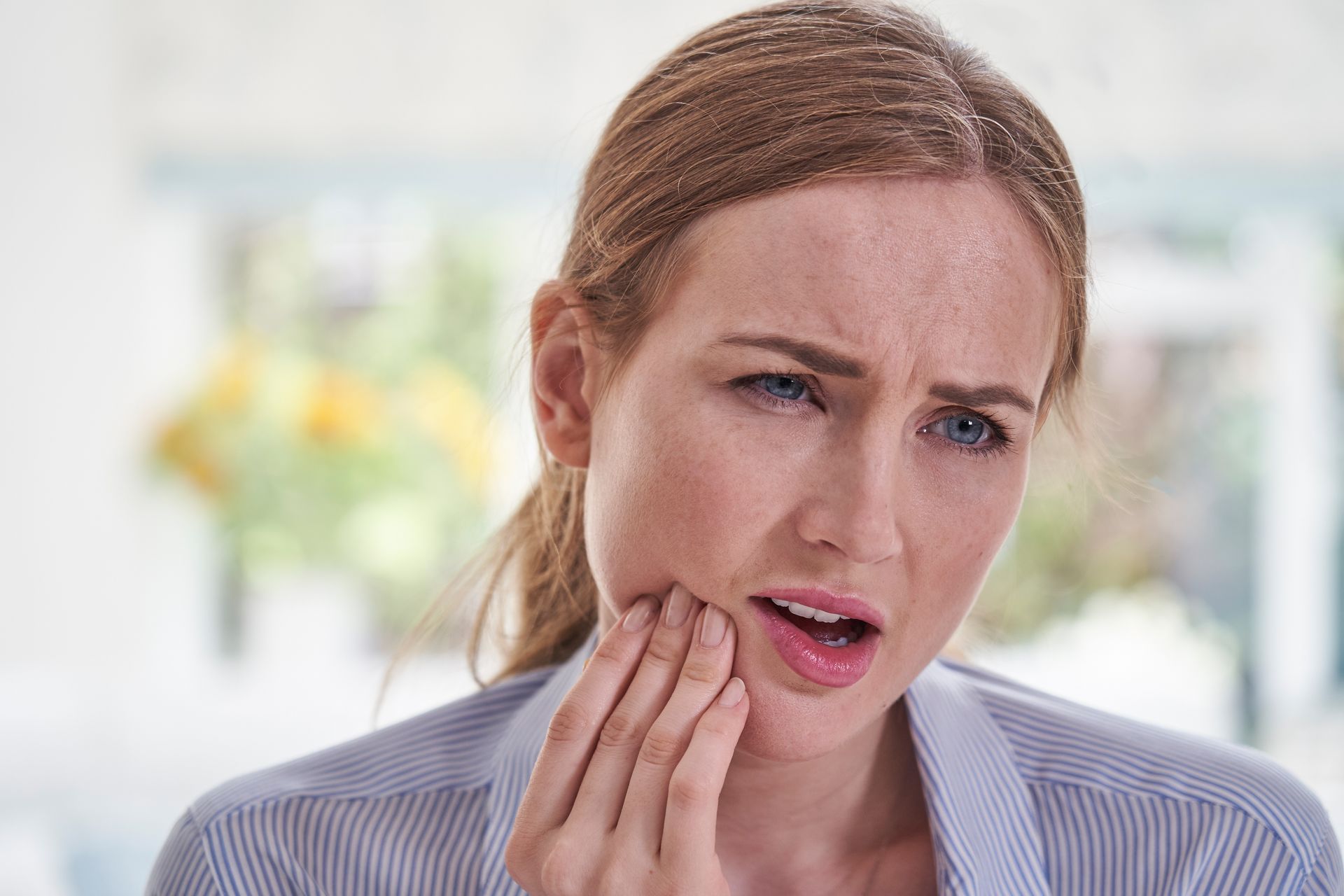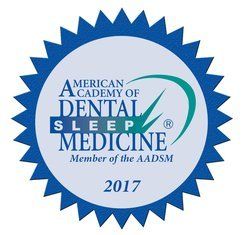How Shoulder & Neck Pain Relates To Your TMJ
Temporomandibular joint disorders are a common cause of neck and shoulder pain. In fact, experts estimate that up to 70 percent of neck problems may be related to temporomandibular joint dysfunction.
The temporomandibular joints (TMJs) connect the skull to the jaw (mandible) on both sides of the head, just under the ears. They work in unison as sliding hinges, moving side to side, up and down, forward and backward. When TMJ problems occur, they may cause a painful condition called temporomandibular joint disorder (TMD). TMD pain is felt in the jaw joints and can spread to the associated system of facial muscles, tendons, and nerves, as well as to your neck, shoulders, and even your lower back.
Other TMD symptoms include, but are not limited to:
- Jaw pain
- Toothaches
- Ear pain or ear fullness
- Pain behind the eyes
- Headaches or migraines
- Popping or clicking sounds in the TMJ
- Limited range of jaw motion and jaw lock
- Dizziness
- Facial pain
Fortunately, Dr. Katherine Phillips has years of experience treating complex TMJ disorders. To learn more about TMDs, click here.
Causes of TMJ Disorders
Like any joint in the body, TMJ overuse and strain can result in pain, inflammation, and swelling. Habits and activities that create stress in your jaw joints and orofacial muscles include teeth clenching during the day, teeth grinding (bruxism) while asleep, chewing gum, eating chewy foods, and even fingernail-biting. Conditions known to cause TMD, such as bruxism and osteo, psoriatic, and rheumatoid arthritis, tend to run in families. Additionally, TMD is linked to obstructive sleep apnea (OSA), with
studies confirming a significant association between OSA and TMD symptoms. Evidence also indicates a relationship between TMD and mental health, physical trauma, and psychological trauma.
Can TMD Cause Pain in Your Shoulders and Neck?
A temporomandibular joint disorder can be debilitating. Jaw pain and lockjaw can make it difficult to chew or talk. Nagging headaches are also common. So too is neck and shoulder pain. Many of the muscles in the maxillofacial, neck, and shoulder regions are intricately connected. The complex TMJ system of muscles, joints, and bones allows you to talk, chew, turn your head, and more.
A problem in one muscle or joint can affect other muscles and joints. Thus, an injury, misalignment, or a host of other jaw issues could also result in pain in your neck and shoulders.
TMDs often fail to heal on their own and over time your condition could worsen. A sore jaw could be followed by headaches, or stiffness and soreness in your neck and shoulders. The resulting pain and discomfort could make it difficult to enjoy a good quality of life if left untreated.
Neck and Shoulder Related TMD Symptoms
So how can you tell if your neck and shoulder pain is the result of a TMD? These disorders can be difficult to diagnose and a diagnosis from an orofacial pain specialist is often required. TMDs share symptoms with many other conditions, and as a result, can be easily misdiagnosed.
At the very least, you can watch for troubling symptoms. TMDs normally start with a dysfunction in either the temporomandibular joint itself or the muscles directly connected to it.
Since our muscles are interconnected, the dysfunction can quickly spread, reaching as far as your lower back. Regardless, since TMDs start in or near the jaw, you should check to see if you are suffering from facial pain.
Even if you are suffering from a TMD, you may not notice any pain unless you move your jaw. Try stretching your jaw and moving it from side to side. If pain occurs, it may be due to a TMD. Also, watch for the common symptoms mentioned above.
You can see a more complete list of TMD symptoms here. If you’re suffering from neck and shoulder pain, as well as TMD symptoms, a TMJ disorder may be the cause.
How Can I Treat Neck and Shoulder Pain Caused by a TMD?
Typical neck and shoulder pain treatments may prove ineffective when TMD is involved because they do not address the underlying cause in the jaw joint. Due to the complex interactions of the TMJ and surrounding nerves, tendons, and muscles, it is vital to have a TMD expert like Dr. Katherine Phillips diagnose and treat the underlying cause. This will help ensure treatment success. Effective TMJ disorder treatments include:
- Dental appliances custom-made to treat TMD
- Physical therapy
- Hot and cold compresses
- Anti-inflammatory drugs and muscle relaxers
- Low-dose antidepressants
- Cognitive Behavioral Therapy/Biofeedback
- Referrals to appropriate adjunctive health care professionals to address underlying contributing factors.
A TMD
specialist may be needed to successfully treat TMD-related shoulder and neck pain with related
orofacial pain in the long run. Experts take a multifaceted approach that combines some of all the treatments above, depending on what’s causing the TMD and the severity of the case. The goal is to provide the most immediate pain relief and help you achieve long-term healing and relief.
Avoidance therapy may also provide short-term relief. For example, avoiding hard or chewy foods that strain your jaw joint and muscles may temporarily relieve TMD.
Medications for TMD
Sometimes drug-free treatment options such as physical therapy resolve TMD symptoms, especially if they are mild. Medications, however, are often recommended as part of a comprehensive treatment plan focused on delivering relief as quickly as possible.
Anti-Inflammatory Medication
Over-the-counter (OTC) and prescription nonsteroidal anti-inflammatories (NSAIDs) help relieve pain, reduce swelling and inflammation, and restore function. OTC NSAIDs include Ibuprofen (Motrin), Naproxen (Aleve), and aspirin. However, OTC drugs’ effectiveness may decline over time, creating a need to progress to prescription medications until pain, swelling, and inflammation abate.
When stronger pain relief is needed, NSAIDs such as Mobic (meloxicam) may be prescribed. This can be especially helpful when degenerative conditions that result in chronic inflammation, such as osteo, psoriatic, and rheumatoid arthritis, are the underlying cause of TMD.
Muscle Relaxants
These medications relax the muscles in your jaw and face, helping decrease muscle tension and spasms associated with TMD. Addressing the cause of the pain also improves your sleep quality and supports better jaw function as TMD improves. However, be aware that muscle relaxants can cause drowsiness. As with any medication, follow the instructions carefully.
Antidepressants
Stress and anxiety can result in teeth clenching, often occurring throughout the day, and teeth grinding (bruxism) while you are asleep. Both of these habits exert excess pressure on the TMJs, causing TMD. Low-dose antidepressants can be prescribed primarily to address pain and also help reduce stress and anxiety, so you are less likely to clench your jaw and gnash your teeth, which ultimately relieves stress and strain on the TMJs and thus relieves TMD.
Physical Therapy
Physical therapy for TMD involves using various methods designed to help relieve pain, inflammation, and swelling in the TMJs. In addition, it helps restore normal jaw movement by improving joint motion, alleviating stress on the TMJ and its articular disc, and reducing muscle stiffness.
Massage - Kneading, stretching, and friction massage can be performed to relieve TMD symptoms. Additionally, TMD patients may be taught how to correctly perform self-massage at home to ease jaw muscle tension.
Palpation - Palpation involves using the sense of touch to assess and heal. Working with their fingertips, therapists identify the location of muscular swelling and pain and evaluate the tissue’s health by feeling for its tone and texture.
Jaw exercises - Exercises for the TMJ are designed to stretch and relax the jaw and strengthen its muscles. TMD patients can do these exercises during a physical therapy session as well as at home.
Alternating heat/cool therapy - Known as contrast therapy, the application of heat and ice packs can decrease TMD pain and inflammation, and relax tight, tense jaw muscles. When subjected to cold, muscles contract, inflammation lowers, and pain signals are reduced. Conversely, heat therapy increases circulation and loosens tight muscles to ease the pain.
How Does an Occlusal Splint Work?
Custom-made occlusal splints, also known as bite guards, are worn in the mouth like a sports guard, although they are much different. They are specially designed to relax jaw muscles and ligaments and prevent teeth grinding, clenching, and other jaw actions and movements that could trigger TMD or cause it to worsen. Made from hard acrylic, they guide the jaw as it moves side-to-side and front-to-back, supporting the jaw muscles and preventing additional loading forces in the joint. Soft sports guards can worsen a TMJ problem due to their “chewy” nature.
Dr. Katherine Phillips, who specializes in diagnosing and treating TMD, creates customized occlusal splints tailored to your bite using advanced 3D imaging. As treatment progresses, splints are modified or adjusted in the office to accommodate muscle changes and to maintain reduced force on the joints.
Once TMD is adequately treated, neck and shoulder pain directly related to the TMD may be relieved. Additionally, combining splint therapy with physical therapy of the neck and shoulder region may increase the benefits.
Conclusion, Next Steps
TMD is a serious condition that can cause a surprisingly wide range of problems, including neck, shoulder, and even back pain. You may also suffer headaches, ear pain, have trouble sleeping, and struggle to chew or talk. It’s easy to underestimate just how debilitating a TMJ disorder can be.
Dr. Katherine Phillips specializes in diagnosing, treating, and relieving pain caused by TMD. She is double board-certified in orofacial pain and dental sleep medicine and has spent most of her career in these two fields instead of general dentistry. With extensive experience and education, she uses mainstream, evidence-based medical science to identify the contributing factors causing your pain and will offer a TMD treatment plan that best fits your needs.
So, if you are suffering from neck and shoulder pain, along with other common TMD symptoms,
contact Dr. Phillips today.
Resource Links
https://www.verywellhealth.com/is-your-neck-pain-related-to-your-jaw-joint-4145794
https://www.ncbi.nlm.nih.gov/pmc/articles/PMC3706181/
https://www.colgate.com/en-us/oral-health/temporomandibular-disorder/tmj-massage-to-relieve-jaw-pain
https://www.ncbi.nlm.nih.gov/pmc/articles/PMC4062347/
https://www.healthline.com/health/tmj-exercises
Contact Us Today For A Consultation!
Contact Us
Thank you for reaching out to us at REstore TMJ and Sleep Therapy. We look forward to helping you. We will follow up within 24 hours for contact requests received during normal office hours Monday – Thursday. If you have submitted a request later in the day on Thursday – Sunday, we will follow up on Monday. If you would like to talk to us before we can get to your request, please feel free to give us a call at 281-296-6797 Monday – Thursday 8am – 4:30pm. Have a great day!
Regards,
Dr. Katherine Phillips and Staff
Please try again later.
REstore TMJ & Sleep Therapy P.A.
1001 Medical Plaza Drive,
Suite 200 | The Woodlands, TX 77380
281-296-6797
Dr. Phillips serves TMJ & Sleep patients in: The Woodlands TX | Spring TX | Conroe TX Tomball TX | Cypress, TX | Houston, TX | Kingwood TX | Humble, TX | Katy TX
© 2023 by REstore TMJ & Sleep Therapy | Terms Of Service & Privacy Policy | XML Sitemap
-2700x842-1920w.png)







